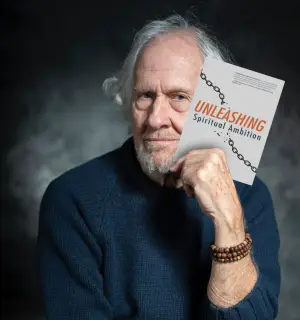Embracing the Ephemeral: A Review of The Bridges of Madison County
When I first picked up The Bridges of Madison County by Robert James Waller, I was merely seeking a quick read to fill a quiet afternoon. What I discovered instead was a profound exploration of love, longing, and the choices that define our lives—a narrative that lingered with me long after I turned the final page. It’s one of those rare books that draws you in with its simplicity, yet unfolds into complex themes of desire and regret, inviting readers to reflect on their own experiences.
At its heart, the story revolves around Francesca Johnson, a farm wife trapped in a life that feels lacking, and Robert Kincaid, a wandering photographer in search of covered bridges in Madison County. Their unexpected encounter sparks a passionate and transformative connection that dares to defy the constraints of their everyday lives. Waller’s ability to weave their emotional turmoil into a genuine and raw love story is what makes this narrative so compelling. It’s not just about a fleeting affair; it’s an exploration of what it truly means to love and be loved.
Waller’s writing is both lyrical and poignant, filled with echoes of nostalgia. The prose flows with an effortless grace that captures the bittersweet nature of Francesca and Robert’s relationship. One standout quote from the book, "Complex things are easy to do. Simplicity’s the real challenge," truly encapsulates Waller’s approach. He manages to express deep sentiments with a deceptively simple style—allowing readers to experience each moment with heightened intimacy. It’s a skillful balance that creates an engaging narrative without overwhelming us with excessive detail.
As I delved deeper into the characters’ lives, their desires and dilemmas stirred feelings within me that I didn’t realize needed addressing. I found myself empathizing with Francesca’s yearning for more than her prescribed life and her struggle with the painful choice between duty and desire. The exploration of her character reveals layers of complexity—she is neither a villain nor merely a victim of circumstance but a multifaceted individual seeking fulfillment.
The concept of love in this novel transcends the clichés often found in romance fiction. It’s not just about the thrill of an affair; it’s about recognizing the depth and weight of one’s choices. As the readers feel the pull of Francesca and Robert’s love, we are also reminded of our own lives—the bridges we choose to cross and those we leave behind. Each perfectly rendered moment invites reflection rather than judgment, allowing for a deeply personal connection with the narrative.
In the end, The Bridges of Madison County is a beautifully crafted tale that speaks to anyone who has ever grappled with the idea of unfulfilled dreams and the fleeting quality of time. While some may have reservations about the characters’ decisions, I found the moral ambiguity refreshing—it challenged my perceptions and left me pondering long after the last chapter. This book is perfect for readers who appreciate stories steeped in emotional complexity and who are willing to embrace the bittersweet nature of love.
For those seeking a poignant read that lingers in the heart, Waller’s work is an absolute must. It’s a stunning reminder of the beauty and tragedy of the human experience, one that invites us to reflect on our own bridges—what we choose to pursue and what we leave behind. I can confidently say, reading this book might just change the way you view love and longing forever.
[ad_2]
You can find The Bridges of Madison County here >>






